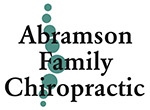Choose Chiropractic First for Neck Pain
According to a recent study, patients who first visit a doctor of chiropractic for new-onset neck pain are less likely to undergo costly advanced imaging services and invasive treatments in the following six months than those initially treated by a medical physician. Spine, October 2023
Curling Irons Can Pose a Hazard for Kids
Between 2013 and 2022, nearly 31,000 children and teens in the United States received treatment for burns associated with hair curler and curling iron use. It's crucial for parents and other caregivers to keep such products out of the reach of young children and to educate and/or supervise older kids and adolescents on how to use them safely. American Academy of Pediatrics, October 2023
DASH Diet in Midlife May Benefit Long-Term Brain Health
The DASH (Dietary Approaches to Stop Hypertension) diet emphasizes eating fruits, vegetables, nuts, whole grains, poultry, fish, and low-fat dairy while limiting the intake of salt, red meat, sweets, and sweetened beverages. A recent study found that greater adherence to the DASH diet in middle age is associated with a 17% reduction in cognitive complaints in the following three decades. Alzheimer's & Dementia, October 2023
Best Type of Exercise for Diabetics
For patients with type 2 diabetes, a recent study found that an exercise regimen that includes both aerobic and resistance training led to greater improvements in body composition, blood pressure, and fasting blood glucose than either form of exercise alone. BMC Sports Science, Medicine & Rehabilitation, November 2023
Short-Duration Sleepers May Be at Greater Risk for Depression
A recent study found that individuals genetically prone to short sleep (less than five hours a night) have an elevated risk for depression in the following four to twelve years. On the other hand, adults with a genetic predisposition to depression are not at increased risk for short sleep. Translational Psychiatry, October 2023
Menopause Poses Risks for Women's Heart Health
The American Heart Association notes that factors linked to menopause—including depression, sleep problems, elevated visceral fat, and declining estrogen levels—can elevate a woman’s risk for heart disease, especially those who begin menopause before age 45. American Heart Association, October 2023
“To acquire knowledge, one must study; but to acquire wisdom, one must observe.” ~ Marilyn vos Savant
This information should not be substituted for medical or chiropractic advice. Any and all health care concerns, decisions, and actions must be done through the advice and counsel of a health care professional who is familiar with your updated medical history.
